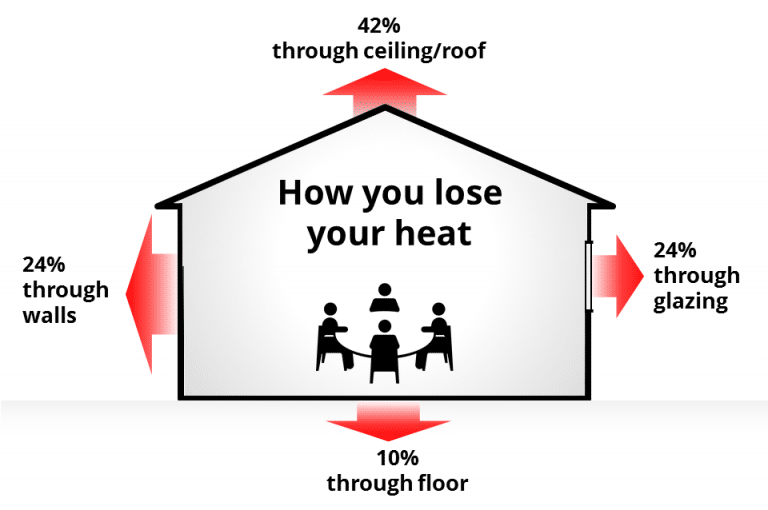
Insulation-Why Is it Important
Insulation refers to a process of reducing heat, electricity, and sound flow between different components. Insulation also refers to the materials used to carry out this process, including fibreglass, mineral wool, cellulose, foam, and reflective barriers.
You can apply insulation to various objects, such as electrical appliances, vehicles, and buildings. This article will discuss building insulation, its importance, and how to get it done.
Importance of Insulation in Buildings
Insulation is vital in building construction, renovation, and design. It is used to regulate indoor temperature by reducing the flow of heat through roofs, walls, and floors, limit noise, and promote building durability, amongst others.
Let’s explore, in more detail, the importance of insulation in buildings.
Increased Structural Integrity
The structural integrity of a building refers to its ability to resist the various environmental and natural forces around it while maintaining strength and stability over time. One major factor that can compromise the structural integrity of a building is frequent and extreme temperature swings. It could typically result in the constant expansion and contraction of building materials and ultimately lead to cracks, deformation, and other forms of damage.
However, in well-insulated buildings, the risks of temperature fluctuations are minimised, thus preventing any strains on the building materials and, ultimately, protecting the building’s structure.
Improved Indoor Air Quality
Asides from reflecting heat, another major importance of insulation is the moisture and condensation control that it provides. By regulating the amount of moisture in the air, insulation materials with vapour barriers – such as the ones available at Blue Tex Insulation – can inhibit the growth of mould, mildew, bacteria, and other harmful microorganisms within a building.
Furthermore, insulation provides a barrier to prevent outdoor air pollutants from entering a building. All these improve indoor air quality and promote good health by reducing the risks of allergies or respiratory infections.
Increased Energy Efficiency
Another major importance and benefit of building insulation is how it lowers the amount of energy consumed in a building. Insulation regulates the flow of thermal energy between the interior and exterior of a building by retaining heat during cold weather and keeping out heat during hot weather. This reduces reliance on air conditioning systems, lowers energy consumption and utility costs, and ultimately increases energy efficiency.
Safety During Fire Outbreaks
Certain insulation materials may contain fire-resistant components that can help delay flames spread during a fire outbreak. These insulation materials can also slow the movement of smoke and other toxic gases, thereby giving occupants of a burning building extra time to vacate the premises and reducing the damage to goods and properties within the building.
Noise Reduction
As of 2020, more than 18% of the urban population in the UK was estimated to be exposed to noise pollution at a harmful level, which would have likely increased since then. This makes noise pollution a serious cause for concern, especially for buildings in noisy environments. So, how can insulation help?
Insulation is an effective sound barrier by minimising noise transmission – absorbing or blocking sound waves – from outdoor sources and noise from other areas in the same building. Made out of materials such as vinyl, foam, and fibreglass, these insulation materials not only increase the concentration and productivity of occupants within the building but also improve the overall quality of life.
How to Get Your Building Insulated
There are several types of building insulation, such as:
- Blanket insulation
- Spray foam insulation, and
- Rigid foam insulation.
All of these come with varying methods of installation. If you want to get your building insulated, here are some quick steps to follow:
Assess Your Insulation Needs
The first thing you need to do is to determine which areas of your building need insulation. Some common building areas that need insulation are walls, floors, and roofs. To determine your insulation needs, consider factors such as the age of the building, the climatic conditions, and your energy efficiency goals.
Research Insulation Options
The next thing you want to do is explore the insulation materials available to you and choose the one that best fits the conditions of your building. When choosing a material, consider:
- Its thermal resistance
- Fire rating
- Environmental impact, and
- Moisture resistance.
Seek Professional Guidance
While carrying out your building, you must seek help from insulation professionals. This is the primary way to guarantee maximum performance and energy efficiency.
Purchase Your Materials
Purchasing the right materials is the most important step in insulating your building. Therefore, you should opt only for sellers of the highest quality materials.
Conclusion
Insulation is essential in building construction and design, and its importance and many benefits cannot be overstated. With the correct materials and installation techniques, property owners can create more sustainable living and working environments, lower energy consumption, promote noise reduction, and sustain the structural integrity of their buildings.



